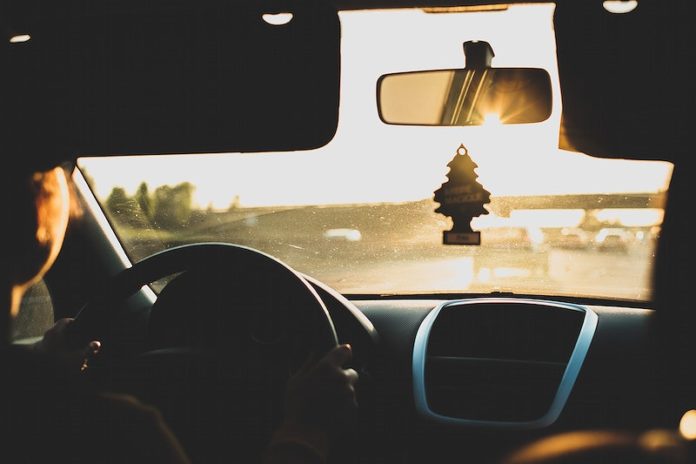Illinois is one of a few states that bans items hanging from a vehicle’s rearview mirror
A new proposal from Secretary of State Alexi Giannoulias and State Representative La Shawn Ford (8th District – Chicago) would no longer make it illegal for motorists to have items hanging from their rearview mirror, which often serve as a pretext for traffic stops.
Under House Bill 2389, law enforcement would no longer have the authority to stop a motorist for simply hanging items like air fresheners, rosaries or disability placards from their rearview mirror while driving. This legislative effort – which passed the Illinois House on March 24 and is awaiting an expected floor vote in the Senate – follows through on a campaign promise Giannoulias made in 2021.
Current Illinois law prohibits such items from hanging from a rearview mirror, or affixed to a windshield, on the grounds that they obstruct a motorist’s vision. Such unnecessary encounters over minor vehicle code offenses can lead to violent confrontations between police and motorists. Additionally, this arcane law can serve as a pretext for racially motivated traffic stops for minor infractions.
“Pulling someone over for merely having an air freshener attached to the rearview mirror is not only archaic, it’s ridiculous,” Giannoulias said. “Amending the law by prohibiting traffic stops that encourage discriminatory practices will ultimately make our streets safer for both motorists and police officers.”
“We need to do everything we can to reduce the need for police interactions with people for non-violent and non-threatening violations,” said Ford, the bill’s chief sponsor in the House. “There is no reason for police to pull over a vehicle just because they have an air freshener on their mirror or for many other minor infractions. Making this change in the law is too important to wait because it’s a safety issue for both the public and law enforcement. Law enforcement is overworked and understaffed. Springfield must use taxpayers’ resources wisely to catch the violent criminals that make all our communities less safe by repealing laws like the air freshener ban.”
House Bill 2389, which is sponsored in the Senate by State Senator Christopher Belt (57th District – East St. Louis), passed the Senate Transportation Committee 17-1 on April 19, sending it to the full Senate for consideration. If the bill passes the full Senate, it will advance to the governor’s office.
Illinois is one of a handful of states with laws banning items from hanging from a rearview mirror.
Chicagoan Daunte Wright was killed in Minnesota in 2021 after a police officer mistook her gun for a taser after pulling Wright over for having an air freshener hanging from the rearview mirror of his vehicle. Former Illinois resident Sandra Bland in Texas and Walter Scott in South Carolina each died following encounters with police involving pretextual stops.
Other states and municipalities are taking similar action to limit pretextual stops, including Pittsburgh, Philadelphia, San Francisco and Fayetteville, N.C. In January, San Francisco’s Police Commission approved a proposal to ban certain low-level, pretextual stops such as driving on an expired registration or driving with a broken taillight. Ten years ago, Fayetteville, N.C. ceased pulling people over for certain minor offenses, which resulted in a decrease in crime and an increase in community trust of law enforcement.
In 2021, the Philadelphia City Council passed the Driving Equality Bill with the support of local law enforcement. The new ordinance classifies several offenses — including improperly displayed registration or emission stickers — as “secondary violations” that police cannot use as the sole reason for pulling over motorists. Violators of these infractions would still receive citations, but tickets would be mailed to the driver’s residence instead.
(Komunikat prasowy)



















































